
April 15-18, 2022
Chiba, Japan

April 15-18, 2022
Chiba, Japan
ICCEMS 2021 Keynote Speakers
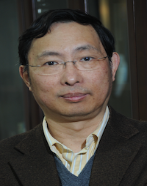
Prof. Xiaozhong Zhang
Tsinghua University, China
Biography: Prof. Xiaozhong Zhang, obtained his BSc in Physics from Fudan University (China) in 1982, MSc in Physics from Shanghai Jiaotong University (China) in 1984. He obtained his PhD. in Materials Science from Oxford University (UK) in 1989. He then worked as a postdoctoral research fellow at The Royal Institution of Great Britain for three years. During 1992-1999 he worked as a Faculty at Physics department, National University of Singapore. In 1999 he joined Tsinghua University as a professor at Department of Materials Science and Engineering. He was the director of Electron Microscopy Laboratory of Tsinghua University during 1999-2006. He is now serving as deputy director of the Key Laboratory of Advanced Materials (Education Ministry), deputy chief of Chinese national nano-technology standardization committee and co-editor of IUCrJ. His research interests are spintronic materials and devices, carbon materials, nanomaterials and nanostructure, electron microscopy, and computational materials science. He has published more than 190 referred papers and been awarded 23 patents. His silicon magnetoresistance work (Nature 2011) was selected in 2011 as “Top 10 scientific advances in China” and “Top 10 University level scientific and technological advances in China.
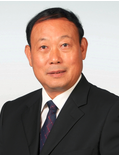
Prof. Zongjin Li
University of Macau (UM)
Biography: Dr. Zongjin LI is Chair professor
at Institute of Applied Physics and Materials Engineering at University of Macau
(UM). He joined UM after his service Hong Kong University of Science and
Technology from 1994 to 2016. He received his B.E. from Zhejiang University,
Hongzhou, China in 1982 and obtained both his M.S. and PhD from Northwestern
University, Chicago, U.S.A, in 1990 in 1993, respectively. He is a fellow of
American Concrete Institute and a registered professional engineer in Hong Kong,
China. He is a member of committees of ISO/TC71, First vice Chair of China Group
of RILEM and Founding President of ACI China Chapter.
He has done extensive researches in the area of cement-based materials and
non-destructive evaluations. As the chief scientist, he has led a China Key
National Basic Research Project (973), ‘Basic study on environmentally friendly
contemporary concrete’, which has made a great contributions to advance concrete
technology in China. As the founding chair of Gordon Research Conference,
“Advanced Materials for Sustainable Infrastructure Development” in 2014, he has
brought the research conference of building materials into a higher scientific
level.
He has published 5 technical books, in which ‘Advanced Concrete Technology’
published by John Wiley has been collected by many national libraries and most
major university libraries and used by many universities as text or reference
books for civil engineering. He has also published more than 400 technical
papers with a SCI H-index of 36 and Scopus H-index of 39. In 2016, he has been
selected as the one of the 150 most cited authors in Civil engineering field. He
has also been awarded five US and seven Chinese patents. Three of his patents
have been developed into commercial products.
He received the Arthur R. Anderson Medal from American Concrete Institute in
2017 and Distinguished Visiting Fellowship Award from British Royal Academy of
Engineering in 2014.
ICCEMS 2020 Keynote Speakers
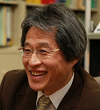
Prof. Akira Toriumi, IEEE Fellow, The University of Tokyo, Japan
Biography: Akira Toriumi received the B.S. degree in physics, the M.S. and Ph.D. degrees in applied physics from The University of Tokyo in Japan in 1978, 1980 and 1983, respectively. Then, he joined R&D Center of Toshiba Corporation in Japan, in which he had been engaged in device physics and technology in CMOS miniaturization. He was with Massachusetts Institute of Technology, USA (1988–1990) as a visiting scientist on leave from Toshiba. In May 2000, he moved to Department of Materials Engineering of The University of Tokyo. He had also served as a high-k gate stack group leader in MIRAI Project (a national project for advanced CMOS in Japan) from 2001 to 2007. He retired in March 2019, and he is now an emeritus professor in The University of Tokyo.
Through his professional carrier, his research interests have been on device physics and materials science with regard to semiconductor devices. Particularly, he has investigated gate dielectrics, functional oxides, electron transport and processing science in Si and Ge CMOS, and low-dimensional materials and devices. He has authored and co-authored more than 600 scientific journal papers and conference proceedings, and several book chapters. He received several awards such as IEEE International Reliability Physics Symposium (IRPS), Best Paper Award (1997), Solid-State Device and Materials (SSDM), Best Paper Award (2000 & 2003), IEEE EDS Paul Rappaport Award (2004), SSDM Award (2014), IEEE Cledo Brunetti Award (2016) and JSAP (The Japan Society of Applied Physics) Outstanding Achievement Award (2017). He served as several international conference chairs and committees such as Executive Committee in VLSI Symposium (2008-2017), Program Chair (2005) and Organizing Chair (2018) in International SSDM, General Chair in Si-Nanoelectronics Workshop (IEEE/JSAP) (1999), Executive Committee (2004-2006) and Vice President (2012-2013) in JSAP, Vice Chair (2010-2011) and Chapter Chair (2012-2013) in IEEE EDS (Electron Device Society) Japan.
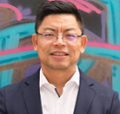
Prof. Tom Wu, the University of New South Wales, Australia
Title: Solution-Processed Perovskite Electronics with Light-Responsive Mixed-Dimensional Heterostructures (Click for Abstract)
Biography: Professor Tom Wu received his B.S. degree from Zhejiang University in 1995 and Ph.D. degree from the University of Maryland, College Park in 2002. Before joining University of New South Wales (UNSW) in Sydney as a full professor, he worked as postdoc in Argonne National Laboratory in Chicago, assistant professor in Nanyang Technological University (NTU) Singapore, and associate professor in King Abdullah University of Science and Technology (KAUST). Dr. Wu has authored 260 peer-reviewed papers in the areas of oxide thin films, nanomaterials, and hybrid perovskites, with a focus on their electronic, magnetic and optical functionalities. His works have been cited more than 15,000 times with a H index of 71 (Google Scholar). He is among the 2019 Clarivate Analytics List of Highly Cited Researchers. Dr. Wu also serves as an Associate Editor for ACS Applied Materials & Interfaces.

Prof. Xiaohong Zhu, Sichuan University, China
Title: Inorganic Solid Electrolytes for All-Solid-State Lithium Batteries (Click for Abstract)
Biography: Dr. Xiaohong Zhu is currently a full professor at the Department of Materials Science & Engineering, Sichuan University, China. He received his BSc degree in Materials Physics from Sichuan University in 2000 and PhD degree in Condensed Matter Physics from the Institute of Physics, Chinese Academy of Sciences in 2006. After that, he did 3-year postdoctoral research at CNRS and CEA in France, and then joined Sichuan University as a professor in 2009. From April 2012 to April 2013, he was also a research scholar at the Department of Physics & Department of Materials Science and Engineering, University of California, Berkeley, USA. He was selected as a New Century Excellent Talent in University of China in 2009 and an Outstanding Young Scientific and Technological Leader of Sichuan Province, China in 2011, and won the 2018 China Industry-University-Research Collaboration Promotion Award. Prof. Zhu’s research interests include mainly graphene-based electrode materials and novel solid-state electrolytes for energy storage devices (supercapacitors and lithium-ion batteries), piezoelectric ceramics, as well as multifunctional oxide thin films and related electronic devices. Until now, he has authored/co-authored more than 110 SCI-indexed papers and 2 scientific books.
ICCEMS 2020 Plenary Speakers

Prof. Andrew J. Boyd, McGill Universit, Canada
Biography: Dr. Boyd obtained a BScEng from the University of New Brunswick (1993), an MASc from the University of Toronto (1995), and a PhD from the University of British Columbia (2001), all in Civil Engineering. He joined the Department of Civil Engineering at McGill University in 2006, following a six-year stint in the University of Florida Department of Civil & Coastal Engineering. He is a registered professional engineer in Canada, was named a Fellow of the American Concrete Institute in 2008, and former chair of the nondestructive testing committees of both ACI and ASTM. Prof. Boyd’s research interests lie in the areas of construction materials and sustainability, particularly as they relate to transportation infrastructure. Specific fields of research include durability, nondestructive testing & evaluation, standards & specifications, repair & rehabilitation, recycling, and hazardous waste reduction & mitigation.
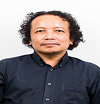
Prof. Mohd Rafie Johan, University of Malaya, Malaysia
Speech: Assessing the Fire Retardant Mechanism of Waterborne Intumescent Coatings Hybrid With Biofiller and Industrial Filler (Click for abstract)
Biography: Professor Dr. Mohd Rafie Bin Johan is a true example of how theoretical and fundamental research leads to remarkable progresses in the applied, engineering and industrial use of nano-designed advanced materials. Born in Melaka, in 1968, Professor Rafie graduated with a BSc in Physics from University of Malaya, Malaysia, in 1993. He continued his studies at Institute for Advanced Studies, Universiti of Malaya, where he obtained his MPhil in Quantum Optics in 1997, moving then to Department of Physics, University of Malaya where he obtained his PhD in Theoretical Physics in 2005. From 1999 to 1991 he was also Head of Biomedical Engineering Program in Faculty of Engineering, University of Malaya.
He later moved to Department of Mechanical Engineering, University of Malaya where from the year 2005 until 2009, as a senior lecturer and played the role of Coordinator for Materials Engineering Undergraduate Program. In 2010, he is promoted to Associate Professor to steer research in Nanomaterials Engineering. Then, in 2015, he is promoted to Professor of Materials Engineering. In 2016, he is transferred to Nanotechnology and Catalysis Research Centre (NANOCAT), University of Malaya Centre of Excellence (UMCOE), an internationally well-recognized center with the mission to be the world leader in “nanotechnology and catalysis” coining sustainability resources and green technology. In 2017, he is appointed as a Director of NANOCAT.
Prof. Rafie is well recognized internationally in the field of Nanotechnology. Testimony to this, he has been elected in Evaluation Panels for AET and ITR clusters and UPGP and for grants applications at UMRG, PRGS, FRGS, Qatar Foundation. He also has been appointed as panel for Yang di Pertuan Agong Scholarship and COMSTECS for Islamic Organization Country for evaluation of best scientific papers for Muslim Scientist. Prof Rafie also has been invited as a speaker to numerous talks and conferences and also Guest Editor for Symmetry (ISI journal) and editor for Asean Engineering Journal. In 2010, he was a visiting scientist at Department of Materials Science and Engineering, University of Cambridge and at 2012, he was a visiting scholar at Abdus Salam International Center for Theoretical Physics, Trieste, Italy. The educational contribution of Prof. Rafie may be summarized in few numbers: 15 PhD completed (15 on-going), 22 Master by Research and 5 Master by Course Work completed (7 on going). These supervised students span over a quite broad scientific area going from science (chemistry, physics, material science, biology) to engineering (chemical, material).